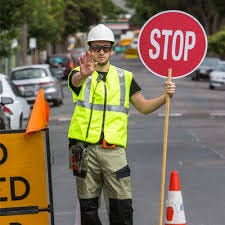Understanding Traffic Control Tickets: What You Need to Know
Traffic control ticket are legal documents issued to drivers or pedestrians who violate traffic regulations. These tickets serve as a crucial mechanism for maintaining road safety and ensuring compliance with traffic laws. Understanding the nature and implications of traffic control tickets is essential for all road users.
Types of Traffic Control Tickets:
Traffic control tickets can vary widely in type and severity, depending on the nature of the violation. Common offenses include speeding, running red lights, failing to yield, and improper parking. Each type of ticket typically carries different fines, points on your driving record, and potential repercussions on insurance rates.

Consequences of Receiving a Ticket:
Receiving a traffic control ticket can lead to several consequences. Most immediately, a fine must be paid, which can vary based on the violation and jurisdiction. Accumulating points on your driving record due to multiple violations can result in increased insurance premiums, suspension of your driving privileges, or even mandatory traffic school.
How to Handle a Ticket:
If you receive a traffic control ticket, it’s important to understand your options. You can choose to pay the fine, which is an admission of guilt, or contest the ticket in court. If you decide to contest, gathering evidence, such as photographs or witness statements, can strengthen your case. Some jurisdictions also offer traffic school as an option to reduce points or fines.
Preventing Traffic Violations:
The best way to avoid traffic control tickets is to practice safe driving habits. Always obey speed limits, adhere to traffic signals, and be aware of road signs. Regularly reviewing local traffic laws can also help keep you informed and compliant.
Conclusion:
Traffic control ticket are an important aspect of road safety enforcement. Understanding their implications and how to handle them can save you time, money, and stress. By prioritizing safe driving practices, you can minimize your risk of receiving a ticket and contribute to a safer driving environment for everyone.
Comments
Post a Comment